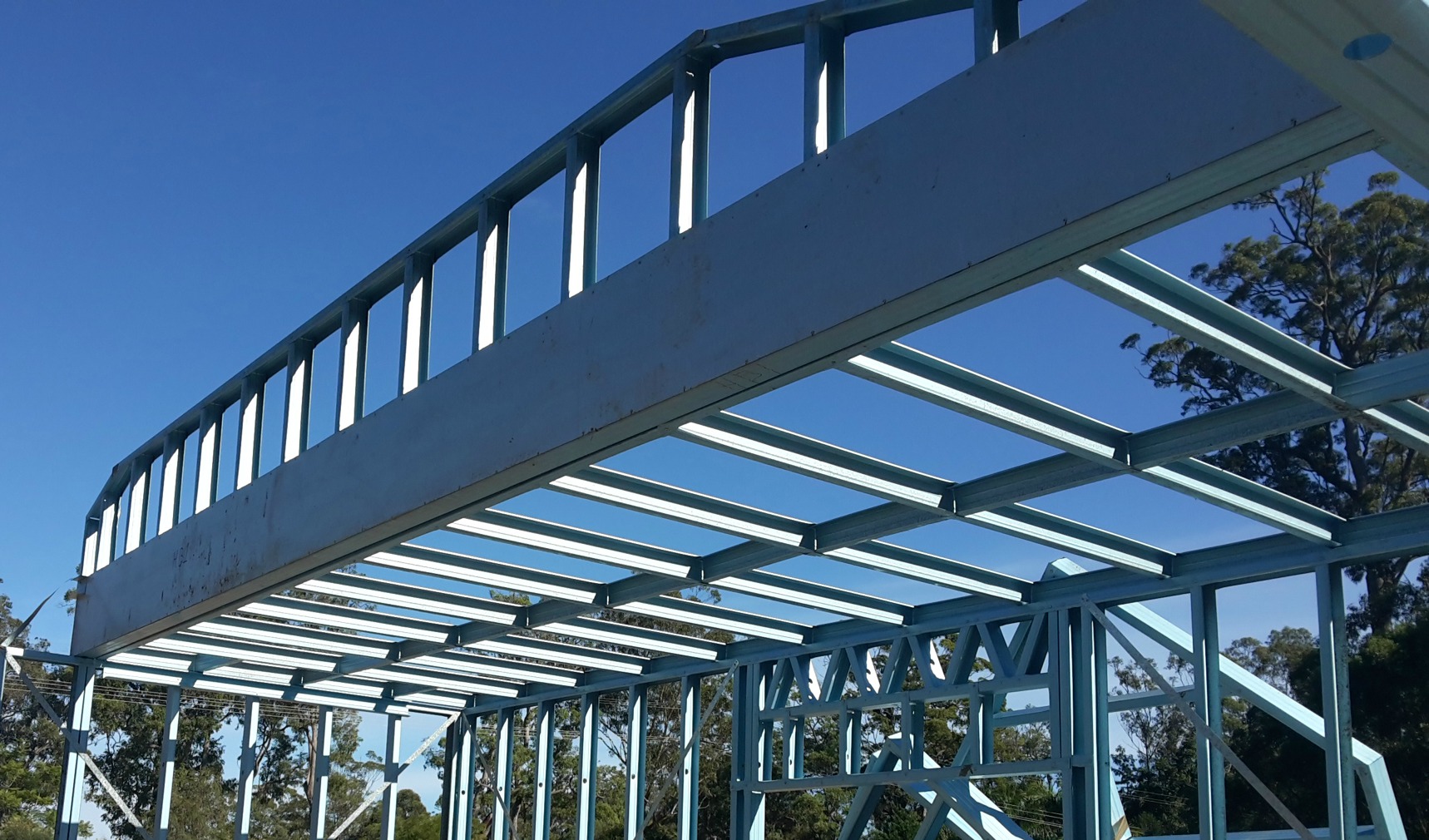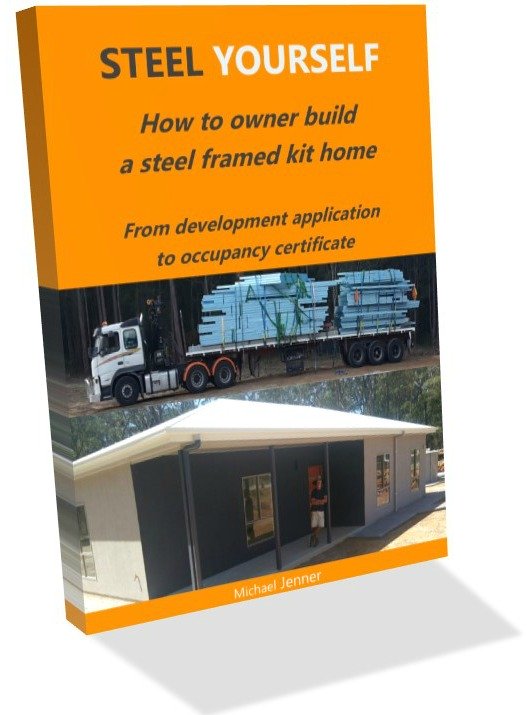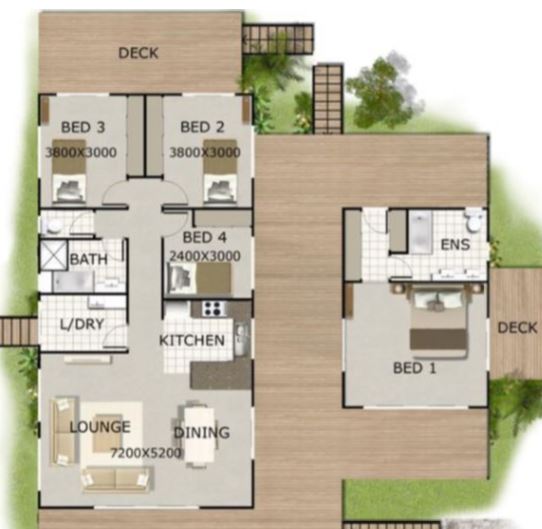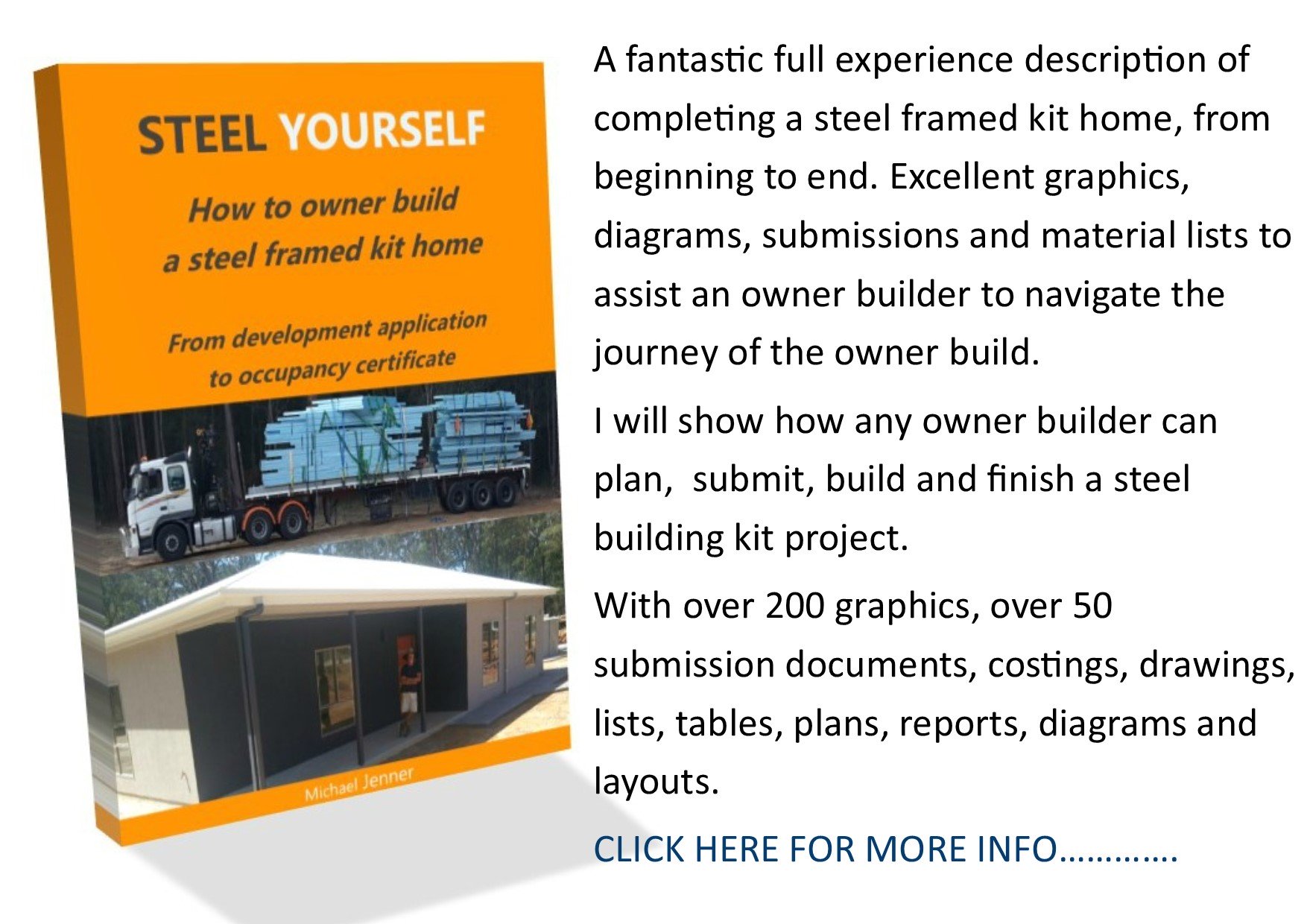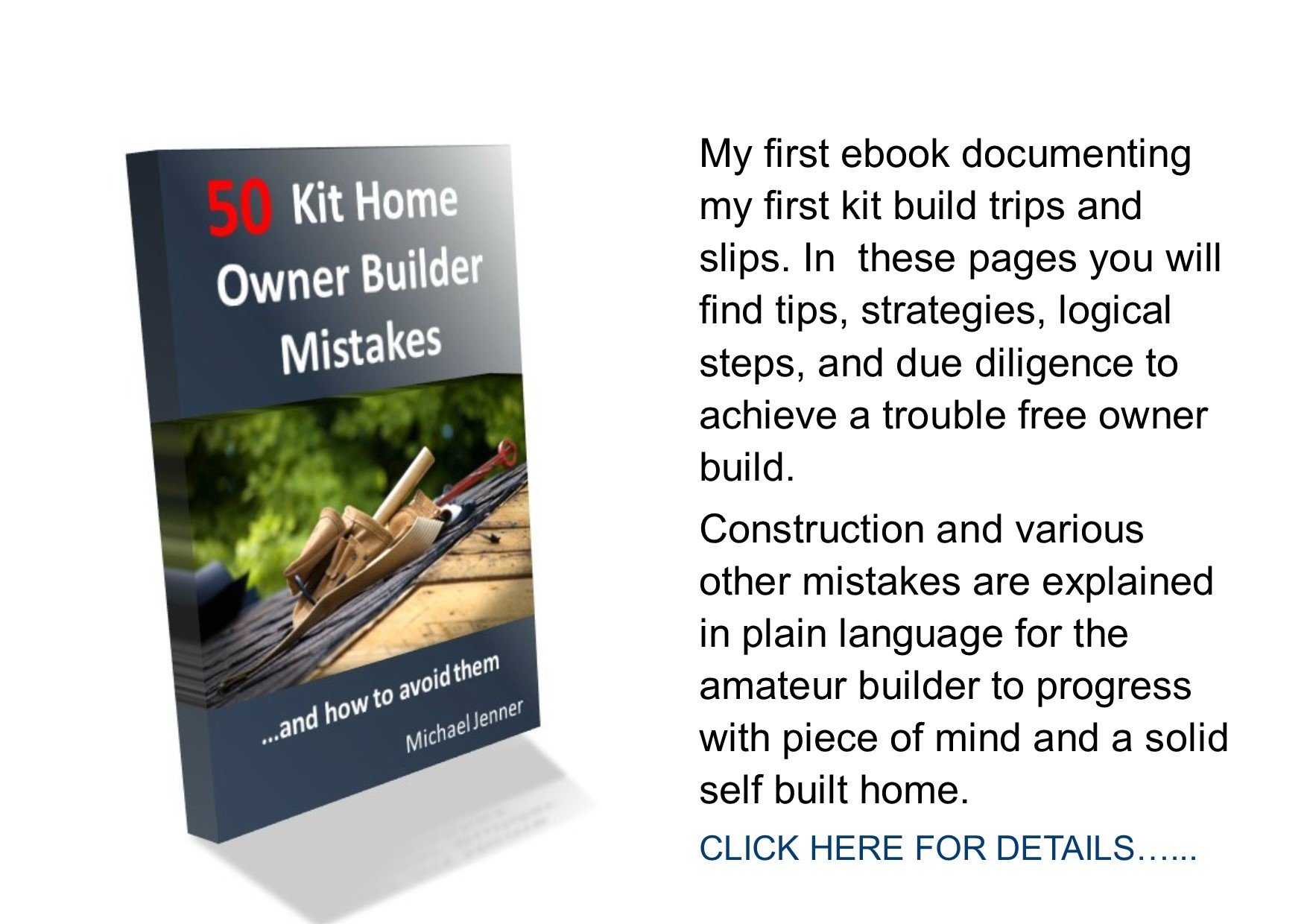DIY Kit Homes:
Starting Issues
All diy kit homes require a starting point, and the 'quick research' on my home page revealed many visitors are not sure what that starting point is. I completely understand this question, being in the same situation more than a few times and, feeling less that confident, which way to move first. Do it yourself home building has its own set of issues so lets start working through them.
How to start a DIY kit homes project
Here are my 3 questions and 6 tips on 'beginning' a project, in order of importance, before you spend any money.
Q1. Is this idea right for you?
Are you capable of carrying out this project to completion?
-how is your physical health, are you a competent handyman/woman, a good project manager, is your finance pre-approved?
Q2. Do you have time?
-the project needs 7-9 months to complete (full time), or forever part time. Do it as a weekend warrior and you are looking at 'years'. Remember, trade workers rarely work on weekends.
Q3. Will family commitments be an issue?
-families/partner needs to accept the project, and assist with management, inclusion selections, appliances and fittings. Family acceptance will accelerate the project 100 fold.
DIY Kit Homes: 6 Tips to begin
T1. Make an initial house type, shape and size decision
-useful information when looking for a kit home. If you don't have any idea, you will never find what you want. I have a page that describes some of the styles and types of kit homes on offer here.
T2. Do you have a land preference?
-decide where you want to live, on acreage or in town, on a sloping block or flat. Does the area you want to live have access to tradesmen? Hint: I found living very close to the site a huge advantage: security and convenience. On my steel kit build I rented a place near the site. Land selection will greatly influence which kit you buy.
T3. Learn the process of a development application (DA)
-access your council / authority's DA web page for all the pro-formas, guidelines, local standards, bushfire codes, checklists, OB licence requirements, and inspection systems. There is some excellent info on my Groundwork page.
T4. Initial due diligence
-Once you choose an area/shire/county to reside, go and visit the local council/authority and see what the building standards/restrictons are. What is the cost of a DA, are you allowed to clear into acreage, can you build on the land you like (building permits aren't always assigned to land), are there building covenants in an estate you like (no owner builders, only brick and tile etc). More info on my Due Diligence Checklist page.
T5. Selecting diy kit homes and providers
-most kit providers are on the net and show graphics of the houses and their floor plan. Tip: look for good owner builder assistance. Compare apples with apples: check what stage the advertised price is for: lockup, with internal linings, or with a floor system. Let your fingers do the walking. Much more on this here...
T6. Read an ebook on the subject.
-a great way to bone up on owner building kit homes is to invest in one of the only ebooks written on kit home building. Steel Yourself: How to build a steel framed kit home. For more information go here...
Go to Kit home FAQ
Go back to Owner Builder FAQ
or return to kithomebasics home page
